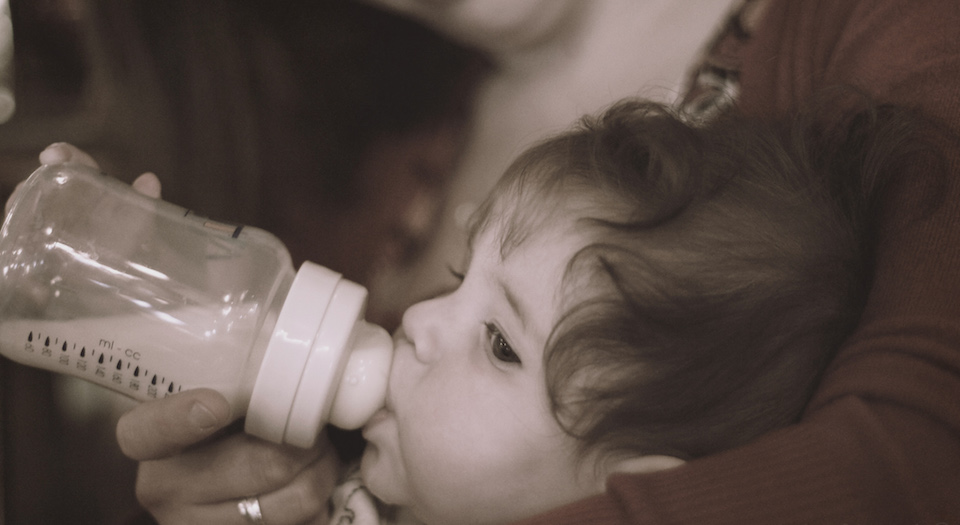Stop policing women’s bodies
Breastfeeding is a personal choice, not an obligation.

It’s World Breastfeeding Week. I know, it seems to come around quicker every year. According to its website, breastfeeding is ‘a key to sustainable development’. The site links raising awareness about breastfeeding with ‘ending poverty, protecting the planet and ensuring prosperity’ – not bad for what I thought was simply a way to feed your baby. Surely, a ‘lactate for world peace’ campaign cannot be far off.
Breastfeeding has become a distinctly political issue. So it was unsurprising to see it make headlines again on Tuesday when the Royal College of Paediatrics and Child Health (RCPCH) called for the importance of breastfeeding to be taught in schools. In an announcement, timed to coincide with World Breastfeeding Week, the RCPCH said the UK has one of the lowest rates of breastfeeding in the world. It wants new measures to be introduced to reverse negative attitudes towards breastfeeding, and wants it to become part of personal, social and health education, which is taught to pupils from the age of 11.
Professor Neena Modi, RCPCH president, told the Guardian she was disturbed that the RCPCH’s research had found children thought breastfeeding was ‘yukky’. No information was given on how old the children in the research were. But, on the whole, ‘yukky’ seems a fairly normal childlike response to any kind of bodily function, doesn’t it? Besides, breastfeeding is already taught as part of biology, as it should be. Putting the emphasis on ‘the importance’ of it suggests teaching it as part of a political agenda. Teachers would be telling pupils this is the way they should feed their future babies, which seems morally questionable.
Modi is one of 17 signatories to a letter in the Guardian which says ‘social attitudes towards breastfeeding must improve’. This makes it sound as if British women are constantly bombarded with anti-breastfeeding propaganda, when, in reality, the opposite is true. SNP MP Alison Thewliss is another of the signatories. Earlier this year, Thewliss drafted a bill to bring in plain packaging for formula-milk products to ensure ‘parents are protected from misleading advertising’. It’s a patronising aim, which suggests parents are brainwashed by advertising.
If anything, it is the alternatives to breastfeeding that are constantly demonised. There are frequent health campaigns extolling the virtues of breast milk over formula, and from the moment women give birth they are encouraged by midwives and medical staff to breastfeed.
When it comes to pregnancy and breastfeeding a disturbing orthodoxy of opinion is promoted, and woe betide anyone who questions it. Earlier this month, skincare brand Baby Dove was vilified for an ad campaign challenging the breastfeeding orthodoxy. The ‘What’s Your Way?’ campaign showed a baby being breastfed alongside the caption ’75 per cent say breastfeeding in public is fine, 25 per cent say put them away. What’s your way?’ There were numerous complaints that the campaign encouraged the stigmatisation of breastfeeding in public. Unilever, which owns Baby Dove, rightly defended itself, saying the campaign ‘simply aims to celebrate the different approaches and opinions around parenting’. Nonetheless, Unilever eventually pulled the campaign. Apparently, suggesting there is more than one way to think about breastfeeding is no longer acceptable.
There is an unhealthy obsession with telling pregnant women and mothers what to do with their bodies. While women have made great strides towards achieving bodily autonomy, thanks to easy access to contraceptives and a society which does not judge women for using them, pregnancy and motherhood still have not escaped the constant hectoring and judgement.
Last week, the National Charity Partnership suggested pregnant women need more help knowing how much to eat while pregnant, after carrying out a survey on the subject. One of the notes from the survey said: ‘Around one in four pregnant women (26 per cent) admit to using the “eating for two” excuse all the time to eat unhealthy snacks or meals. Forty-six per cent say they use it now and again.’
In response to the survey, Alex Davis, head of prevention for the National Charity Partnership, said: ‘We encourage all women to think about how they can eat well and our new information should make this easier for those who are currently pregnant or are trying to conceive.’
Telling a pregnant woman what to eat is only the thin end of the wedge. Earlier this year, Duncan Selbie, the UK public health chief, said hospitals should give pregnant women carbon-monoxide tests to see if they’re smoking. And in 2015, there were calls from Cambridge University academics to monitor pregnant women’s drinking levels. Then there’s the social judgement pregnant women face if they dare to go against the accepted orthodoxy and drink the occasional glass of wine or smoke the odd cigarette when they’re expecting.
In few other areas of a woman’s life is it deemed acceptable to police her bodily autonomy. Yet, for some reason, ‘experts’ and politicians think a woman’s pregnancy and how she chooses to feed her baby are the state’s business. What a woman puts into her body while pregnant (or any other time), and whether or not she chooses to breastfeed, is a personal choice. Women know how to look after themselves and are capable of deciding what is best for them and their babies. Here’s a novel idea: if we want to support pregnant women and new mums, why don’t we start by trusting them?
Naomi Firsht is staff writer at spiked and co-author of The Parisians’ Guide to Cafés, Bars and Restaurants. Follow her on Twitter: @Naomi_theFirsht
Picture by: Nana B Agyei.
To enquire about republishing spiked’s content, a right to reply or to request a correction, please contact the managing editor, Viv Regan.








Comments
Want to join the conversation?
Only spiked supporters and patrons, who donate regularly to us, can comment on our articles.